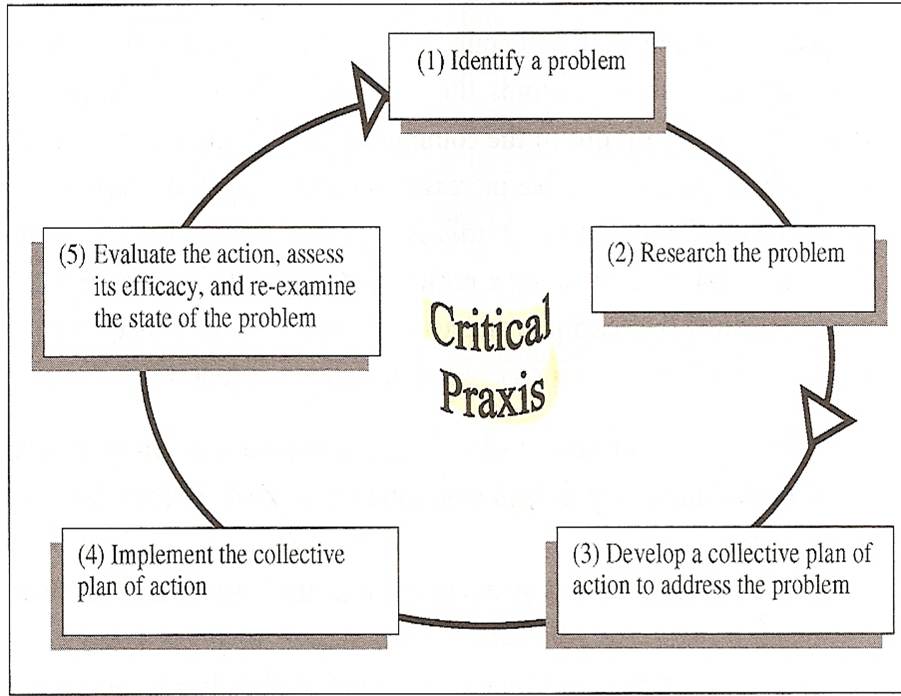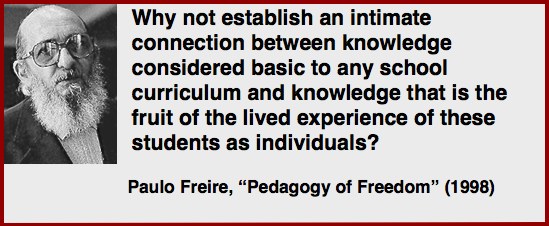————————————————————————————————————————————-
some principles of critical pedagogy
- horizontal, reciprocal rather than top-down, hierarchical “banking” method
- collaborative rather than competitive
- problem-posing and dialogic
- everybody brings knowledge; educator acts as coordinator to bring this out
- seeks to develop critical consciousness of one’s relationship to power structures
- uncovers the “hidden curriculum” of dominant educational institutions
- empowers the voices of everyday people to challenge “culture(s) of silence”
- whole body: mind/spirit/heart/feelings; this includes the “social-emotional”
- oriented towards praxis, social change
1. Freire, P. (2000). Pedagogy of the oppressed (M.B. Ramos, Trans.) (30th anniversary edition). New York: Continuum Books. Ch. 2, read first 11 paragraphs up to [Footnote #1: Simone de Beauvoir…
2. Paulo Freire and the Development of Critical Pedagogy 4.56
3. Four Steps to Liberation: Paulo Freire and Pedagogy of the Oppressed 4.40
4. Paolo Freire’s Pedagogy of the Oppressed, Summary.
5. Denis Goulet (1973). Introduction, Education for Critical Consciousness. New York: Continuum. Read up to p. x, first paragraph.
praxis cycle

Reading questions — written response required
- From these readings/videos:
- Summarize your understandings of critical pedagogy, including some key concepts.
- From readings 1 & 5, select an excerpt — a sentence or few — that seems particularly meaningful to share in class.
- What are your thoughts? In what ways, if any, does this critique resonate with your experience. This might include specific examples.
- In terms of the focus of this course, Diversity and Inclusion in Hollywood, what is your sense of the “problematic”? ( discussed in read #3, Goulet, p. ix). Applying systems thinking, there is obviously not one singular problematic; rather there many levels that play out in varied ways. What topics should we study? What’s strategic? What do you care about and want to change? In responding, include references to some theories and issues that have come up in the first half of the term. How do they apply to a topic(s) of particular interest?
Post on your rolling Google doc. Send link to instructor: jsaxe@umass.edu. Include date and name of assignment at the top of your response notes. Single-space, proof-read. Two paragraphs.
————————————————————————————————————————————
